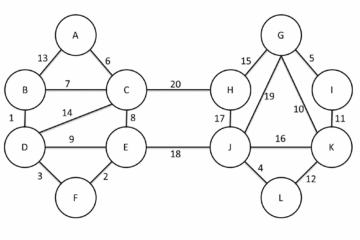Survival horror is a genre within computer games that has a horror focus and the aim to simply help the main character stay alive while they are underpowered and vulnerable in scary scenarios. There are a wide range of games with lots of different takes on the of survival horror genre and with bits of kit such as the Oculus Rift round the corner developers are exploring all new ways of trying to emerge the player in scary scenarios. Ever since I first guided Alpha Team to successfully escape the old mansion on the outskirts of Raccoon City back in ’96, survival horror has been my favorite type of computer game.
Nowadays I play games much less than I used to, and as a result I am much more picky about the games I choose to invest my time in. I’ve found that now most of the games I pick up and play until completion belong to the survival genre, the last two games I booted up on my console were Alien Isolation and Dead Space 3, and while they were both good games I was left feeling that I didn’t get the full experience from either of them.
(Spoilers ahead)
Alien Isolation is a great game and a great example of survival horror. You play Amanda Ripley who is investigating the disappearance of her mother, who you will know as Ellen from the Alien film franchise. About an hour in to the game Amanda meets a single Alien much like her mother did aboard the Nistromo. This alien cannot be killed and Amanda must use stealth tactics in order to survive. It is a great game, and the fact you cannot kill the alien makes the feeling of managing to simply stay alive part of the game, that is until the end cut scene at the very end. When Ripley finds herself floating in space not knowing what will happen to he next, roll credits. I was very annoyed at this ending to the game because surly the payoff of playing a survival horror game is that if you complete it your character survives.
(End of spoilers)
Dead Space 3 is anther good example of survival horror, this time it is more action based and unlike Ripley, the main character, Issac Clarke, can fight back against his enemies. To fight back Issac can craft weapons out of bits he finds lay around. Crafting bits and pieces together to survive is a staple of survival horror, it makes you feel underpowered and think hard about which items you craft and when you should use them. I was really glad this feature had made it in to the game, that was until I made my way to a crafting bench only to be met with a message that said something along the lines of “You don’t have enough resources to build this, press X to pay 69p to buy some more”. It was basically giving me the option to skip part of the game where I have to think about resources, scavenging and survival, is it still a survival horror?
The problem I have with both these games is that the developers have both lost my trust in them as game designers. The ending to Alien Isolation was not an ending at all, I know that Amanda Ripley will survive…. as long as I pay for the additional downloadable content packs. In the case of Dead Space how can we trust the developer to make a game with a fair resource system when they are trying to push micro transactions.
I understand why this has happened, the price of a big budget video game is actually less than it ever has been before. While the price of a new game might seem steep at £30-£40, long time players might remember that the most outlets sold survival horror game Resident Evil 2 on the N64 was £70, and that was back in 1999, the game was also practicality a port! One reason that prices might have come down is that more people buy the product than they did then or that production costs are cheaper (N64 cartridges were much more expensive then DVDs/Blu Ray). But another big reason is that now, when a user buys a game there is a good chance they will purchase extras for the game in the form of in app purchases or other additional content.
I’m not against paying for additional content to add to a product, but it becomes a problem when it makes us doubt the way in which the original product was designed. With games I think it is quite easy to see when the game play is designed in a certain way to make you want to pay more. Not having a real ending or screwing with the resource system I think are very clear messages that the developers expect you to pay more than the initial cost for the base product and that the base product itself has been designed according to the additional content they plan to push, it will affect you if you want the content or not. I suppose at least it isn’t making me pay just so that I can look better than my friends like many mobile games do.
I guess the thing about having played games for so long is even as a consumer we know how the model has changed, we know that actually we pay less for the base product than we used to but now we pay more for the bells and whistles additional content. Some games and publishers make a good separation between the extra content and the base product and some do not, publishers such as EA and Ubisoft broke the trust of gamers and got a bad rep because of it. I’ll check the reviews very carefully of anything I buy from the same publishers of Alien Isolation and Dead Space just to see just how much the base product has been tampered with in the hope I’ll put down some extra cash.
As a customer I find it much harder to decipher what is going on in the business models surrounding the education system. I mean, we are paying more, right? At a recent meeting with Talis about Learning Analytis systems a student recently told Talis staff they shouldn’t be doing all this stuff with his data (he called Talis services ‘spyware’) and then turned to University staff in anger and explained that now he is paying all this money we should be more trustworthy than before. In his eyes the reverse has happened than the games industry, the University is getting more money for the product than it was a short time ago, and as a result the University should be cutting back on the addition ‘bells and whistles’ content and improving the core package he is paying so much for. It was hard to argue against his point.
I know that behind the scenes the funding model has changed and that the University is not getting 9 grand extra per student, but of course they do not see it like that. Changes in application rules and numbers some Universities are doing everything they can to create bells and whistle that will bring in extra income. Overseas courses, ‘sexy’ subject courses, TV personalities driving cars, gamification of content, etc etc. I also think the themes I seem to be working on, Learning Analytics and the such, seem to be most happily pitched to management as ‘additional content that will bring in extra income’. I wonder if these extras affect the base product in a similar way to games, and if we’ll break the trust of our customers in the same way if we are not clear about what is happening. Do students feel like Amanda Ripley after their undergraduate degree, waiting for the Masters degree additional content to finish their story?



0 Comments